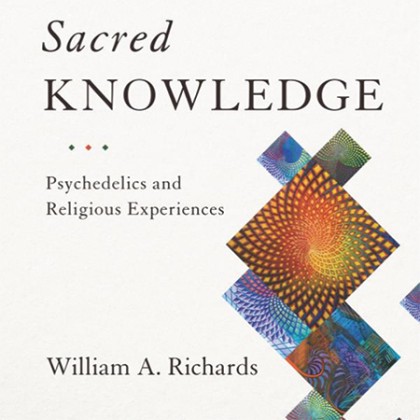William A. Richards may be one of the few scientists to write, "In case you had any doubts, God (or whatever your favorite noun for ultimate reality may be) is," and not inspire an immediate eye roll. That sentence appears on a list of topics to consider in his new book, Sacred Knowledge: Psychedelics and Religious Experiences (Columbia University Press), and would not be unexpected in something like Jack Kerouac's The Dharma Bums, but in a scholarly work by a clinical psychologist at the Johns Hopkins Bayview Medical Center?

Credit Richards for showing why he considers such a new-agey claim worthy of scientific reflection. Over the past 16 years, Richards and a handful of other researchers at Johns Hopkins and around the country have explored the role of entheogens—Richards' preferred term for psychoactive substances such as ayahuasca, dimethyltryptamine (DMT), lysergic acid diethylamide (LSD), and psilocybin—in treating patients dealing with addiction and terminal illness. Richards initially became interested in such work in the 1960s following his own experience under the influence of psilocybin in a clinical setting in Germany. For the remainder of the '60s, Richards continued his psychology education, eventually landing at the Maryland Psychiatric Research Center in Baltimore, where from 1967 to 1977 he investigated the role of entheogens in the psychotherapy of addiction and distress in terminal cancer patients. Between 1977 and 1999, financial and institutional support for research involving entheogens was all but suspended in the United States, as the substances were politically and culturally stigmatized.
Sacred is Richards' illuminating and empathetic argument that entheogens, when administered in a controlled setting and with proper clinical support, consistently produce positive results in addicts and patients facing end-of-life unrest—and that the 22-year gap in entheogen research means we're dramatically unaware of their potential uses. Part memoir, part history of entheogen research, and part philosophical meditation, Sacred isn't a humble call for science and medicine to take God seriously but for practitioners to consider that what their patients say following psychedelic treatment can offer insight into studying the complex psychology and science of the mind.
Posted in Politics+Society
Tagged psychology, religion, psychedelics, psilocybin








